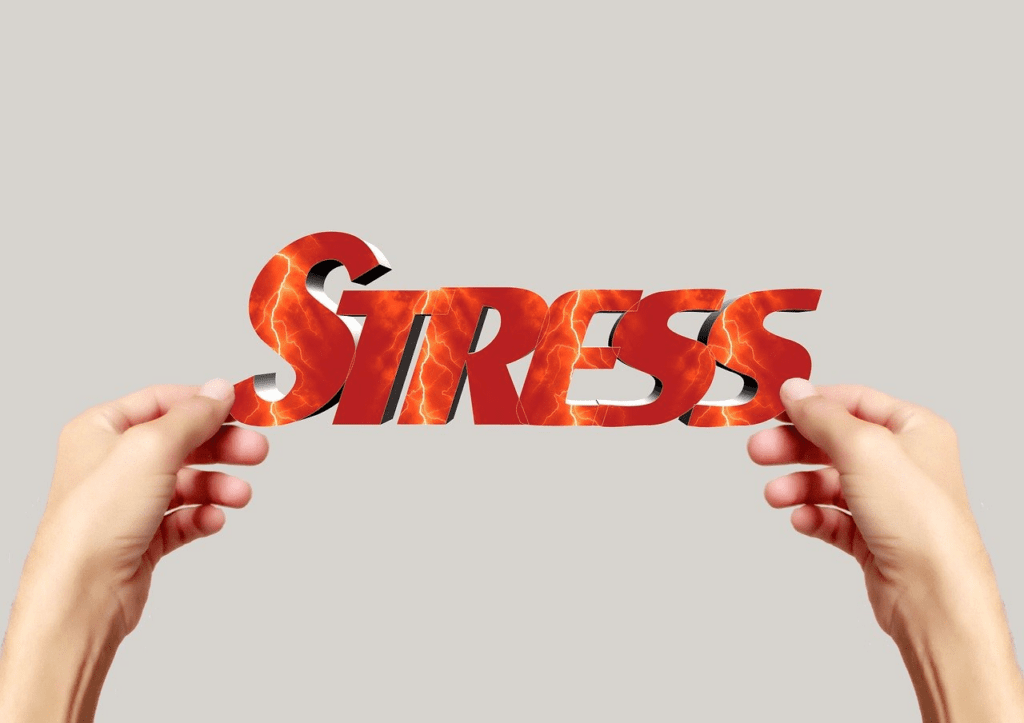
I’ve never heard this term, Psychosomatic Health, used before until I found a chapter about it in a book I recently mentioned on this blog.
I’m taking a break from posting on my progress on digging out the patio area. I’m hoping that in two weeks I can post the finished results. We’ll see… but in the meantime I wanted to share something I found interesting and hope you will too.
The title of this blogpost is the title of a chapter in a book that I found among the seminary books from my dad’s collection. The copyright is 1983. The entire title on the cover of the book is— “can you cope with happiness? (with the subtitle) Because our self-image is influenced by our guilt-laden society, many of us can’t “cope” with happiness or success.” by Joyce Duco.
As you know, I’ve been on a quest for achieving good health for many years. Joyce Duco’s chapter about psychosomatic health discusses how much our mind can have an affect on our health, whether good or bad.
She begins the chapter with a quote from Socrates, “There is no illness of the body apart from the mind.” (p. 78)
She defines the word “Psychosomatic” — “simply means mind and body working together”. The mind and the body can work together to “produce disease, as in ‘psychosomatic illness.’…. (but the) MIND AND BODY CAN ALSO WORK TOGETHER TO PRODUCE VERY POSITIVE RESULTS, thus we have learned that it is possible to attain PSYCHOSOMATIC HEALTH.” (p.78)
Joyce Duco says, “The body wills to be well. The body has unlimited capacity for health just as the mind has unlimited capacity for knowledge. The body also has ways of healing itself if we let it, and if we assist it with healthy thoughts….The body is the victim of diseased thoughts that are transmitted to it and the diseased thoughts cause negative chemical changes within the body, then the immune system weakens and disease sets in. Unfortunately, many of us fear our bodies. We think of our bodies as unreliable machines that cannot be trusted to work properly. This constant fear of body malfunction is making the insurance companies wealthy.” (p.78)
She goes on to say, “Some of us don’t want to take an active part in our health because we lack the discipline to make the EFFORT REQUIRED to eliminate stress in our lives… to ban harmful foods from our diet, to remain physically active, and develop a proper mental attitude to maintain health. Not only do we NOT take an active part in our health, some of us are unwilling to participate in our healing when we become ill. We leave this to the doctor and to the medicine he prescribes.” (p. 79)
On pages 79-80 she gives the statistics that Dr. Siegel, assistant professor of surgery at Yale University Medical School, found out through his work with cancer patients:
- About 15-20% of people who are seriously ill would prefer to die if given the opportunity.
- 50-60% of the patients are willing to get better SO LONG AS THE DOCTOR DOES THE WORK AND THE MEDICINE DOESN’T TASTE TOO BAD.
- The final 15-20% say, “I’ll do anything I have to do to get well. Just show me.”
Joyce says, “How sad that so few people are motivated to live! Sad, too, is the lack of discipline in so many lives. Control and responsibility for something so vital as our own lives is apathetically handed over to another!” (p. 80)
She tells the story of a man who had an incurable connective tissue disorder and couldn’t walk. His physician told him his chance for living was “one chance in 500.” (p.80)
He incorporated laughter, vitamin C, and a positive attitude into his health regime. He watched “humorous films” and “discovered that ten minutes of hearty laughter gave him two hours of sleep without pain. He refused to believe his disease could not be cured and he welcomed the challenge to overcome his intolerable condition.” (p.80)
This patient stated, “Since I didn’t accept the verdict, I wasn’t trapped in the cycle of fear, depression and panic that frequently accompanies a supposedly incurable illness.” (p. 80)
Joyce continues, “The medical profession claims that up to 85% of the illnesses are stress-related or stress-induced. Chronic or prolonged stress, and negative emotions can cause negative chemical reactions to occur in the body, the immune system weakens and colds are contracted, ulcers are developed, and often the cancer cells that are ever-present in the body go out of control.” (p.81)
At one point Joyce was told by her doctors that she had psychosomatic illness. She says, “… when I realized my mind (attitude) was causing my illness, I concluded my mind could also stop and/or cure my illnesses. I used the same power, but in reverse. To me, psychosomatic health was more appealing than psychosomatic illness.”(p.82)
Joyce says, “Our conditioning attracts illness. It disturbs me when I hear people say,’cancer runs in my family’ or ‘I inherited my heart trouble’ or ‘people in my family die young.’ Have you ever stopped to think that these ailments might ‘run in the family’ because the inability to cope with stress, rejection, etc., ‘runs in the family?’ As children we imitated attitudes and behavior of those in our immediate environment. If a parent worries a lot and has frequent moods of depression, disorders such as high-blood pressure, ulcers, etc., invariably develop. The inability to cope is influencing the child and the child will probably become an adult with that similar personality and prone to the same physical disorders. So often sickness is a symptom. The real problem is some deep-laden guilt, rejection, hurt, burden that we’ve bottled up, not faced or failed to work through completely.” (p. 83)

The author discusses other psychological causes of illness. She says, “…some individuals may subconsciously attract illness for attention, control, convenience and as a means to escape duties and responsibilities. This is not to say that these people are not really physically ill. They are ill—and when we understand the power of the mind we understand why: we understand that their subconscious has received messages relating to their desires to be pampered, in control, or gaining attention, and it (the subconscious) had obediently provided opportunities… via illness.” (p. 84)
The author concludes the chapter with her suggestions to achieve and maintain Psychosomatic Health. They are as follows:
- Remain physically and mentally active.
- Eat properly and moderately.
- Build self-esteem by knowing your worth as a child of God.
- Discover your purpose in life and possess a strong will to live.
- Set long-range goals.
- Overcome stress with faith in God’s goodness and faith in yourself.
- Learn from the wisdom of past experiences that ALL THINGS ARE PASSING, and that what seemed to be a tragedy at one time, actually was a blessing in disguise.
- Enjoy your hours of work, or find work that you enjoy.
- Develop a proper mental attitude as A WAY OF LIFE.
- Be convinced that wherever you are, God is, and all is well. (pp. 85-86)
I have thoroughly enjoyed this book and the wisdom shared by the author. Some of it took me by surprise and I was not sure I would agree with her on a few topics. I’ve posted the ones that I do agree on.
The Bible also shows that God stands strong for His people who are trying to be obedient to His Scripture. Taking care of your body, God’s temple, is an act of obedience. Working toward psychosomatic health is a great place to start. Here are a few verses that show how God stands for those who do what is right.
- For the Lord loveth judgment, and forsaketh not His saints; they are preserved for ever: but the seed of the wicked shall be cut off. Psalm 37:28
- Be not deceived; God is not mocked: for whatsoever a man soweth, that shall he also reap. Galatians 6:7
- But seek ye first the kingdom of God, and His righteousness; and all these things shall be added unto you. Matther 6:33
- The eyes of the LORD are upon the righteous, and His ears are open unto their cry. Psalm 34:15
- But and if ye suffer for righteousness’ sake, happy are ye: and be not afraid of their terror, neither be troubled. 1 Peter 3:14
- Blessed is the man that walketh not in the counsel of the ungodly, nor standeth in the way of sinners, nor sitteth in the seat of the scornful. But his delight is in the law of the LORD; and in His law doth he meditate day and night. And he shall be like a tree planted by the rivers of water, that bringeth forth his fruit in his season; his leaf also shall not wither; and whatsoever he doeth shall prosper. Psalm 1:1-3
- Blessed are they which do hunger and thirst after righteousness: for they shall be filled. Matthew 5:6
- Many are the afflictions of the righteous: but the Lord delivereth him out of them all. Psalm 34:19
- No weapon that is formed against thee shall prosper; and every tongue that shall rise against thee in judgment thous shalt condemn. This is the heritage of the servants of the LORD, and their righteousness is of me, saith the LORD. Isaiah 54:17
** Do you have any tips to add to Joyce Duco’s on how to achieve Psychosomatic Health? If so please include them in the comments below.

Thanks for sharing the interesting information, Jane. I believe mind, body, and soul are all part of health.
I believe you’re right on track with your thoughts on health. Thanks for commenting, Joni!